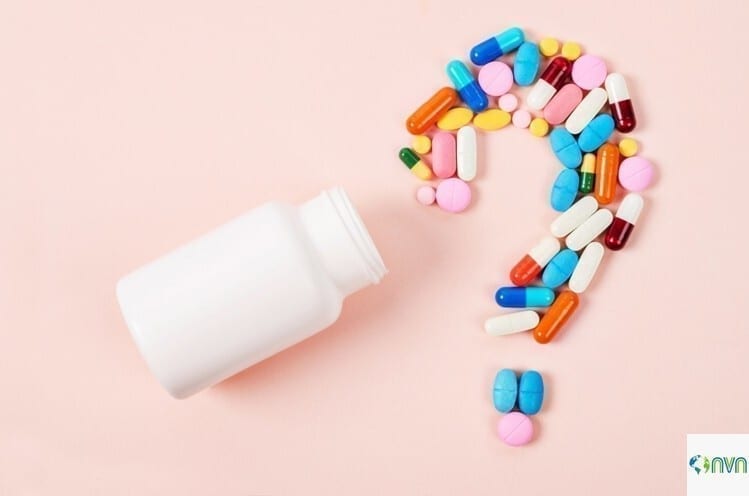Medical & Pharma
Antibiotics – A Perilous Choice To Make

Table of Contents
Antibiotics are medicines that help to arrest bacterial infections by either killing the bacteria (Bactericidal) or by preventing them from copying themselves or reproducing (Bacteriostatic). The word antibiotic means “against life (that of bacteria)”, however, when administered, it attains the meaning of being “For Life”. The graph of advancement in the field of Antibiotics has been tremendously positive and an ever-increasing one. From Penicillin being discovered by Fleming as the 1st antibiotic to the modern-day antibiotics like Chloroamphinicol, the usage and effect of antibiotics have been an area of study and research to date. However, on one hand, where antibiotics are highly beneficial for humans, it also poses the threat to the human body of killing all the good bacteria present which helps in the efficient functioning of the body.

Know Your Antibiotics
Thus before gulping in an antibiotic pill or taking an antibiotic injection, one must always ask the following 5 things to oneself or the concerned doctor:-
1. Are antibiotics a necessity?
Many a time for smaller infections that of ear, throat, eyes, etc… we immediately turn to take antibiotics pills for faster recovery and/or treatment, sometimes even without asking the concerned doctor. In such cases, antibiotics can acquire dangerous forms by hindering the normal ongoing body processes and causing side effects like stomach disorders, sleeplessness, fatigue, etc… Moreover, many times, diseases aren’t bacterial at all. They may be viral or fungal. But we, irrespective of the nature of the disease or unknowingly, take antibiotics which can make situations worse and also make the body resistant to it, such that in real-time when the antibiotic is needed it may not stand effective at all. So before taking in antibiotic medication, always ask yourself and consult the doctor whether or not it is a necessity in your case.

Antibiotics
2. Are you aware of the associated side effects?
After a thorough consultation with the concerned doctor, when an antibiotic is finally prescribed, it is imperative to know the associated side effects it causes/it can cause. Antibiotics are very helpful as drugs, but they also come with their drawbacks—which is another reason why one should make sure they are completely necessary. One very common side effect seen is antibiotic-associated diarrhea and/or a disturbed bowel movement which is thought to be caused by upsetting the balance of bacteria normally existing in the gastrointestinal tract. But, everyone doesn’t need to face it. Where on one this above side effect is not so serious there is something called Clostridium difficile (C.diff) which is a severe condition, leading to fever, abdominal pain, excess diarrhea, and possible colitis. If one has any of these symptoms or any other noticeable abnormality in the body after taking antibiotics, he/she should consult the concerned doctor immediately and get a thorough check-up done.
3. Should a probiotic also be taken alongside?
Antibiotics are of 3 kinds, namely – Broad-spectrum i.e., killing all bacteria, narrow-spectrum i.e., killing fewer bacteria and limited spectrum i.e., only killing the concerning bacteria. However, since a normal person cannot distinguish between the types of bacterial spectrum, in most cases when taken, antibiotics lead to the killing of many useful bacteria that are necessary for the smooth functioning of the body. Thus, to replenish them, it is advised to take along with it a probiotic which are supplements containing good bacteria that are either the same as or very similar to the bacteria that already exist in the body. Yogurts, cheeses, and fermented foods like kimchi and sauerkraut are good sources of probiotics. But again, as not all probiotic supplements are equal in action, it is prescribed to always ask the concerned doctor for his/her recommendation on/for it.

Antibiotics
4. Does it interact with the ongoing medications?
It is a general practice by the expert doctors to always ask for the ongoing medications and then suggest something in addition to it for the concerned malady, keeping in mind that whatever administered doesn’t affect the course of action of other medications and/or cause complications by interacting with them. Thus, whenever taking an antibiotic, one should always study the effects of the ongoing medicines on the newly prescribed ones and/or let the doctor positively know about it.
5. How soon will I feel better?
This is probably one of the most important questions which one needs to ask himself/herself and/or to the doctor concerned, not only in case of antibiotics but for any medicine administered in general. Typically, as humans, we tend to assume and think that whatever administered will give immediate relief to us i.e., within 24 to 48 hours after the first dose. But, we must remember that like other medicines, antibiotics are also not magic pills. They have their dosages and associated course of action, which may take some time also depending on the severity of the disease. Alternatively, it can also happen that one may start feeling better within two days which, however, does not mean that he/she should alter the dosages or stop taking the medications before the given period ends.
Immunotherapy – Evolving cancer care during COVID 19 pandemic





























